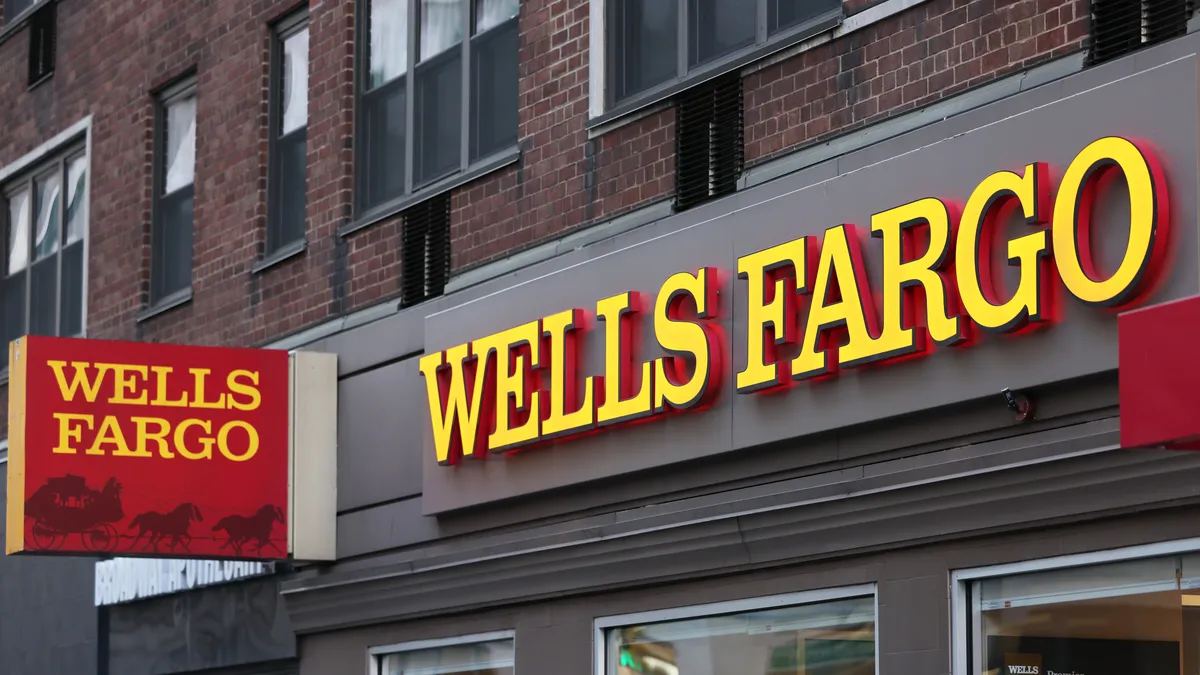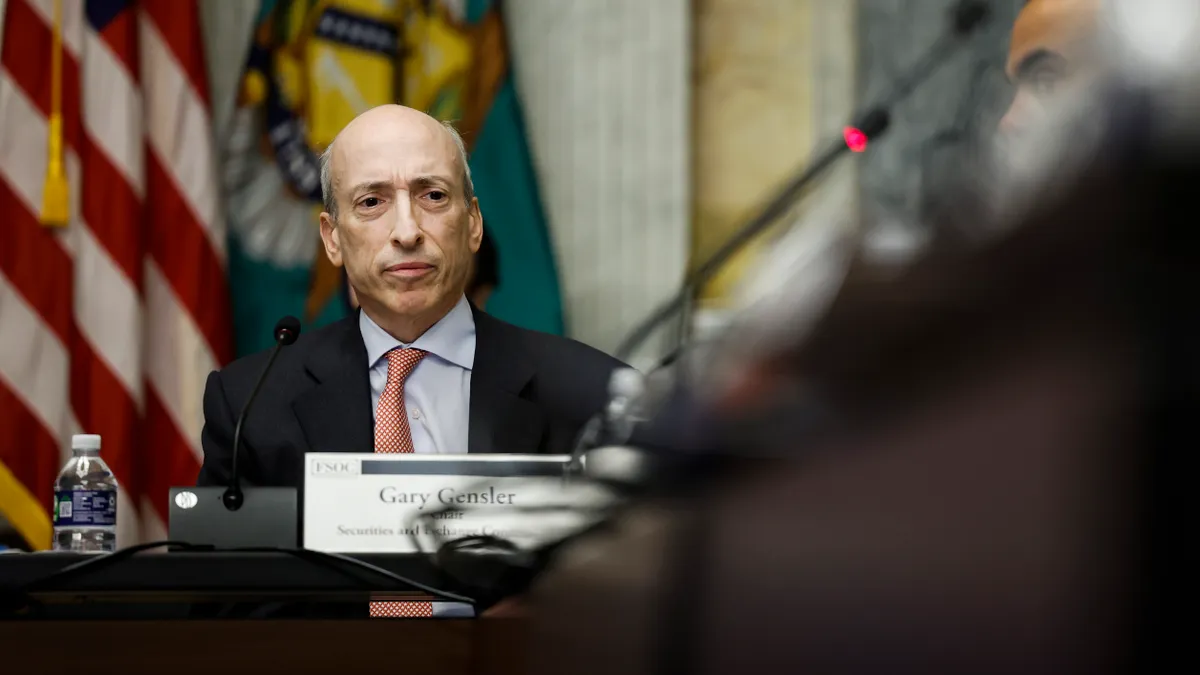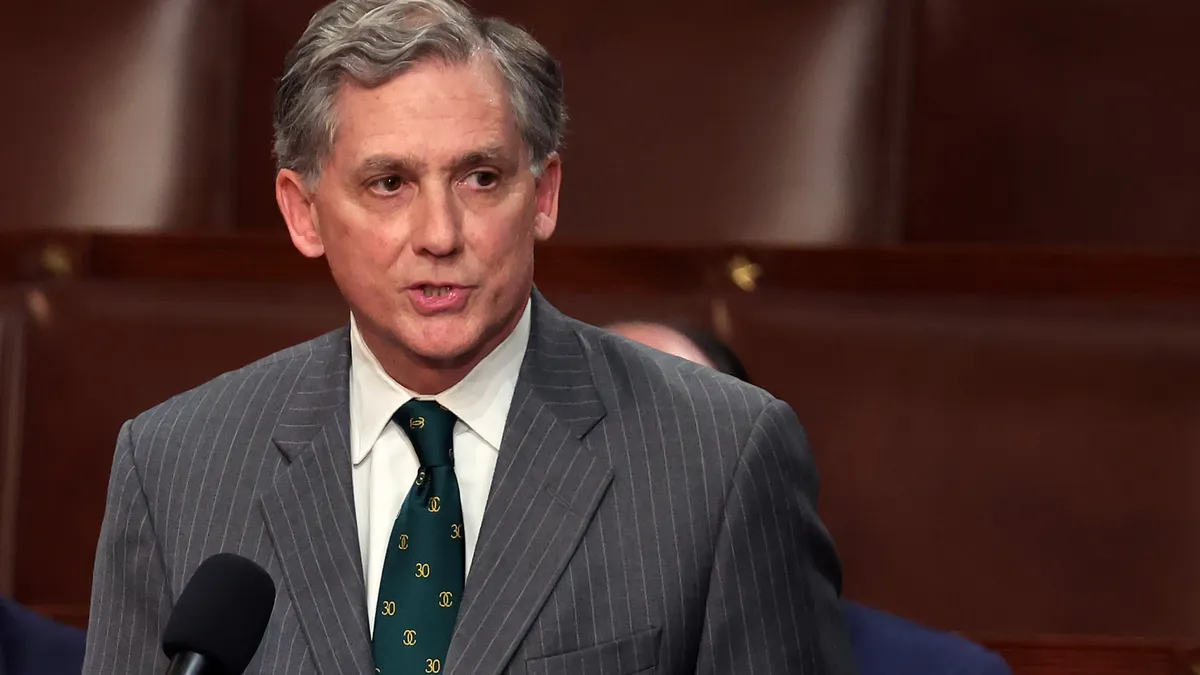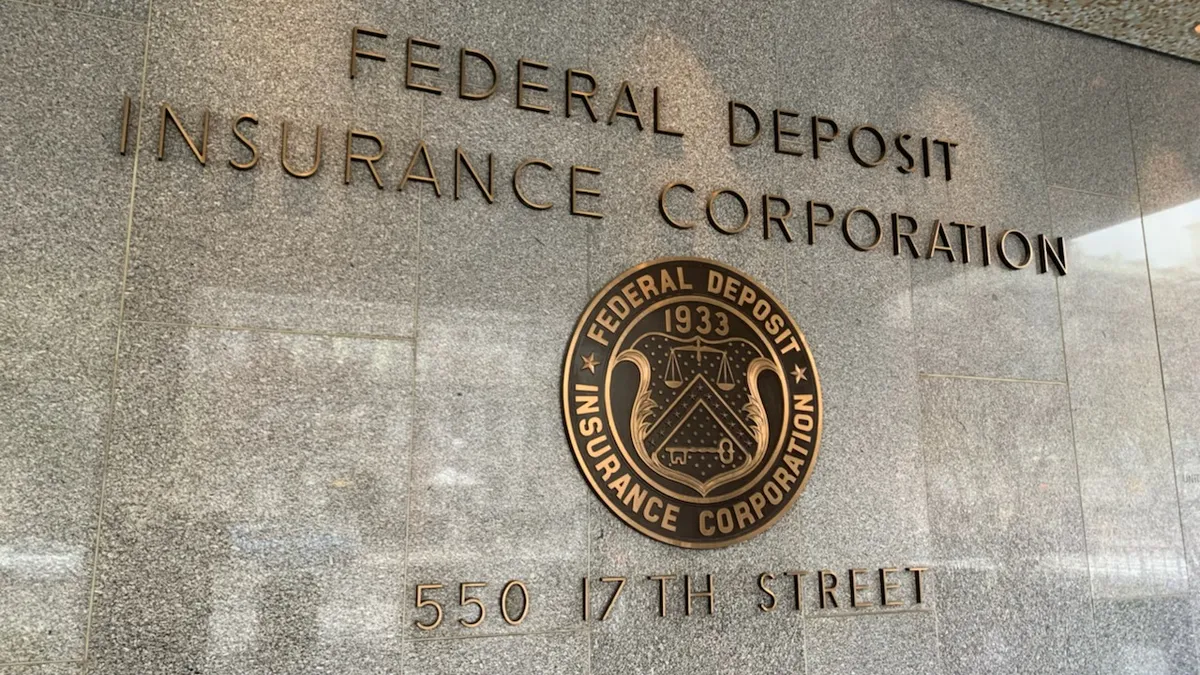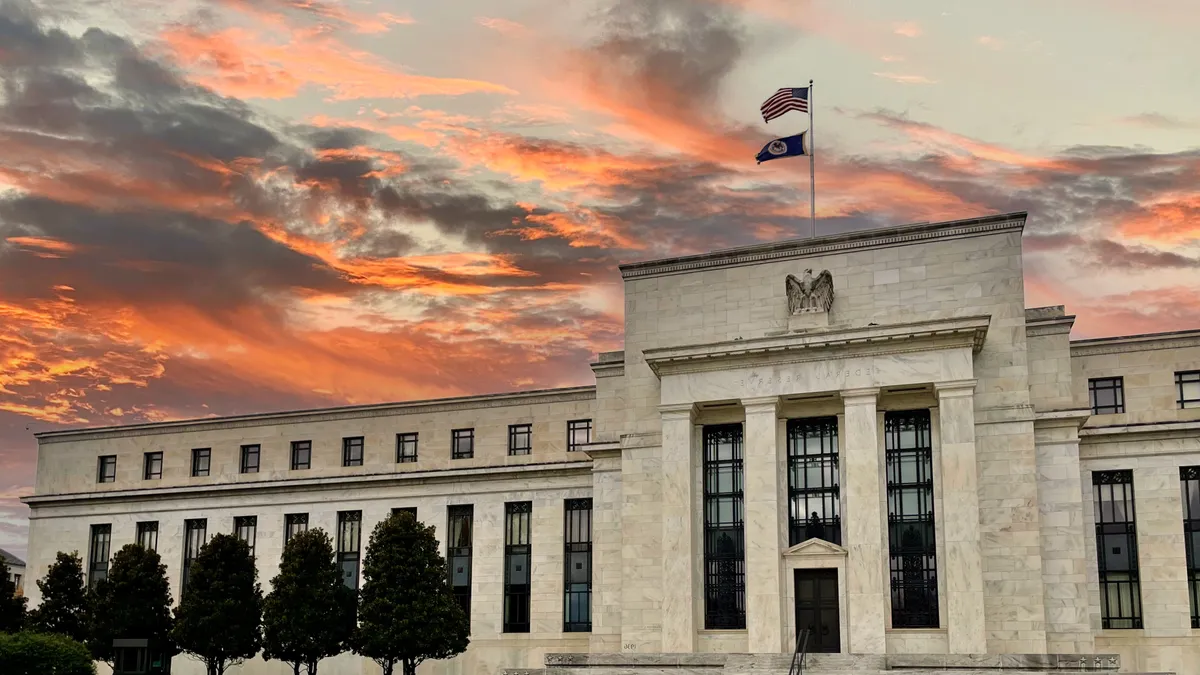The Office of the Comptroller of the Currency has issued an enforcement action against Wells Fargo over flaws related to its anti-money laundering internal controls and the bank’s financial crimes risk management practices, the regulator said Thursday.
The agency said it found deficiencies in several areas of the San Francisco-based lender’s controls and practices, including suspicious activity and currency transaction reporting, customer due diligence and Wells’ customer identification and beneficial ownership programs, according to a news release.
The agreement requires Wells to enhance its AML and sanctions risk management practices, get the OCC’s acceptance of the lender’s program that assesses AML and sanctions risks of new offerings, and notify the regulator before expanding some of those offerings, the bank said.
In a statement on the formal agreement with the OCC, the bank said it has “been working to address a substantial portion of what’s required in the formal agreement, and we are committed to completing the work with the same sense of urgency as our other regulatory commitments.”
Wells’ disclosure in its most recent quarterly filing that it was facing “inquiries or investigations” from “government authorities” on issues related to its anti-money laundering and sanctions programs had ignited some speculation on the topic, so the formal action wasn’t a complete surprise, noted Piper Sandler analyst Scott Siefers.
“Nonetheless, we had hoped that [Wells] simply had a low bar for disclosure and it might only imply a broader/heightened regulatory focus on this industry-wide,” he wrote in a note to investors. “Evidently, we were too optimistic. Needless to say, an unfortunate but not shocking step back in what had otherwise been good forward progress this year on resolving regulatory concerns.”
Wells, which has grappled with the long shadow of its 2016 fake-accounts ordeal, is no stranger to negative regulatory attention. The bank remains under a $1.95 trillion asset cap, imposed by the Federal Reserve in 2018. The asset cap is one of nine consent orders against the bank; six have been lifted since Charlie Scharf became CEO.
Earlier this week, CFO Mike Santomassimo said Wells has continued its client remediation work on that front, and the lender spent the first half of the year “working really hard to put some of the historical issues behind us.”
“Sometimes these things take much longer than you would expect,” he said.
In the 26-page agreement, which did not come with a fine, the OCC tasked Wells with improving internal controls, policies and procedures, reporting, and management and board accountability around AML and sanctions practices.
The bank must submit a plan to address AML/BSA and Office of Foreign Assets Control sanctions shortcomings, enhance its audit program to evaluate effectiveness of AML/BSA and sanctions practices, and adopt a program “to ensure the integrity of data” relevant to AML/BSA and sanctions compliance systems, according to the agreement.
The OCC also requires the bank to seek prior written approval from the agency before launching new products or services or entering new geographies.
“This broad-reaching definition could apply in some way to [Wells’] future growth strategies, but what it could mean in practice is hard for us to say,” Jefferies analyst Ken Usdin wrote in a note to investors.
Although AML issues often carry fines and can require lengthy and expensive resolution, Royal Bank of Canada analyst Gerard Cassidy said he doesn’t expect the OCC agreement will affect prospects for lifting the asset cap, “as that was directed at [Wells’] consumer banking problems and not AML issues, as today’s agreement covers,” he wrote in a note to clients.
The bank has hired some 10,000 employees across its risk and control groups, and upped its spending by $2.5 billion per year since 2018, suggesting the new enforcement action isn’t likely to move the overall cost needle by a large amount, Usdin said.
Other big banks have made AML and sanctions mentions in regulatory filings lately. Bank of America’s most recent quarterly filing added “‘the adequacy of the Corporation’s anti-money laundering and economic sanctions program’ to a long list of uncertainties and risks that should be considered.” Citi has noted “increasingly complex sanctions and disclosure regimes" in its filings, and JPMorgan Chase has a standing disclosure about a 2019 money-laundering issue in India, Usdin wrote.
And Canadian lender TD is facing a probe into its U.S. AML program, tied to allegations traffickers used the bank to launder at least $653 million tied to the drug fentanyl.
“Could other banks be at risk of a similar OCC order? We simply do not know,” Usdin emphasized.



